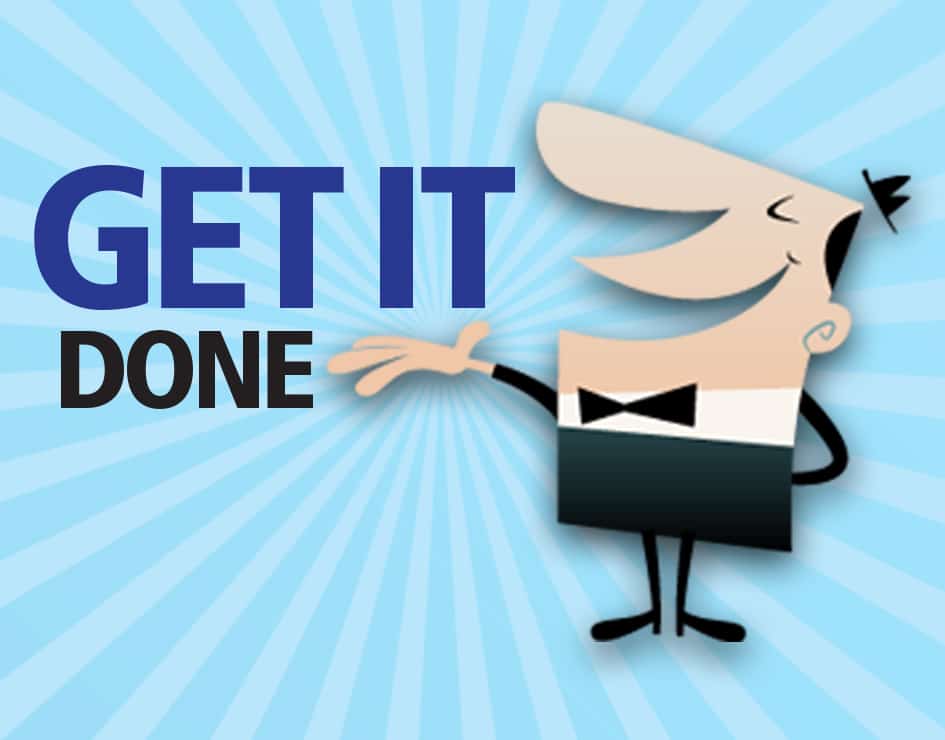Between deadlines, billable-hours requirements, responsibility for bringing in clients and so much more, we all know the legal profession can be taxing. Add to that responsibilities for family and any associations or boards you may belong to, and the daily pressure on a lawyer can be overwhelming. The stress most endure would make a cardiologist shudder.
That is why it is so important to make sure your productivity system is absolutely under control, all the time. I know it’s not easy, so this is for those of you who may have let your time management system slip, and those who may feel intimidated at the thought of starting anew.
Let’s Review: Tips for Getting Back to Getting Things Done
Recently a client emailed to say the idea of starting up again with David Allen’s “Getting Things Done” (GTD) methodology seemed daunting. That made perfect sense to me. Even if you’re “in-between” productivity systems — or a system you tried has completely failed you — and you’re just getting by, it can be overwhelming to start something new. That’s true even if you are restarting a system that at one point did work for you.
Whether you are a strict disciple of the GTD methodology or you’ve never heard of it, there are a few basic fundamentals I can recommend to help you become more focused, productive and efficient.
First, block out 30 minutes in your calendar for first thing in the morning. Take out a legal pad and write down everything that’s on your mind: every thought, every brainstorm, every task. Give yourself more time, if need be. Just ensure you give yourself as much time as needed to get everything out of your mind and onto that pad. Don’t look at or do anything else. When you’re done, identify which items on the list are single tasks and which ones are actually projects. (I subscribe to GTD’s definition of a project: If it takes more than one action to complete, it is a project and each individual task must be listed.)
Next, look at your list and organize it. Separate the tasks that have an actionable next step you must take into the separate areas of responsibility of your life — work, home, associations, charities or anything else you are involved in. Once you complete this step, things should begin to come into focus a bit more.
Now, take each of these separate lists and break them down into separate buckets or “contexts.” Organize your lists by where you need to be, or what you need to have on hand, to complete the next action items. Determine what tasks are phone calls, emails, things you can only do on your computer, errands, things you have delegated or those awaiting a response, and, finally, tasks that do not have an actionable deadline, but you intend to complete someday. Your buckets should look something like this:
- Calls
- Computer required
- Errands
- Emails
- Someday
- Waiting
Once you have your lists broken down by the different areas of responsibilities in your life, by both single next-action items and projects, and finally by contexts, reward yourself! You have completed three out of five steps in the GTD workflow:
- Collect
- Organize
- Process
Now, it’s time to review your lists. By far, my best recommendation for positioning yourself for success each and every day is to review your lists and determine what must absolutely get done today. How do you decide that? Not just by deadlines, but equally important, by looking at your calendar. Determine how long each task you want to get done should take, then ask yourself whether you have time to do it. Are there enough uninterrupted “chunks” of time in your calendar to get it all done?
Get it done. Once you’ve successfully reviewed your lists and determined what must go right for the day, the final step — not surprisingly in the GTD workflow — is to get it done!
If this method seems intimidating in any way, it shouldn’t. Does it require a bit of work up front? Yes. Is it worth it? One hundred percent yes. Because if you get this right and make it a habit, your stress will be lower, you will be happier — and others will thank you for it as well!
Daniel Gold is a productivity author, podcaster, keynote speaker and consultant. Join him on Facebook, Google+ and Twitter.
Illustration ©ImageZoo.

















